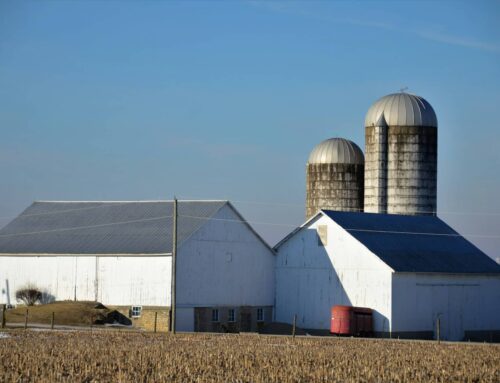The Section 40A Tax Credit for Biodiesel and Renewable Diesel was most recently extended by the Inflation Reduction Act (IRA). Section 40A is intended to subsidize the production of biodiesel and renewable diesel derived from soy and other vegetable oils, animal fats, used cooking oil, and other waste products.
Legislative History
The biodiesel tax credit was created as a temporary tax subsidy in the American Jobs Creation Act of 2004, but it has been extended nine times, most recently through the end of 2024. Historically, Congress granted 1- or 2-year extensions. However, the FY2019 omnibus bill extended the credit for five years—retroactively for 2018 and 2019, and prospectively for 2020-2022. The IRA extended the credit for an additional two years, through the end of 2024. After that, the credit will be replaced by the 45Z Clean Fuel Production Credit, which will replace several existing tax credits for various types of fuels, including 40A, 40 (Cellulosic Tax Credit), and 40B (Sustainable Aviation Fuel Tax Credit).
Eligibility
Section 40A comprises three distinct credits: the biodiesel mixture credit, the biodiesel credit, and the small agri-biodiesel producer credit.
Biodiesel and Renewable Diesel Mixture Credit
This is a $1.00 per gallon credit for biodiesel used to produce a qualified mixture. A qualified mixture combines biodiesel and diesel fuel, sold or used as fuel by the taxpayer producing it. Eligible biodiesel must meet the registration requirements for fuels and fuel additives established by the Environmental Protection Agency under section 211 of the Clean Air Act (42 U.S.C. 7545) and the requirements of the American Society of Testing and Materials (ASTM) D6751.
Biodiesel and Renewable Diesel Credit
The biodiesel credit is $1.00 per gallon for biodiesel that is not part of a mixture with diesel. It applies when the biodiesel is either used by the taxpayer or sold at retail and placed directly into the vehicle’s fuel tank. If the fuel is sold at retail, only the retailer who places the biodiesel into the vehicle’s tank is eligible for the credit. Eligible biodiesel must meet the same EPA registration and ASTM D6751 requirements.
Small Agri-biodiesel Producer Credit
This credit offers $0.10 per gallon for agri-biodiesel produced by small producers (those with a capacity of less than 60 million gallons annually). Agri-biodiesel is made from virgin oils, including esters derived from virgin vegetable oils from corn, soybeans, sunflower seeds, cottonseeds, canola, crambe, rapeseeds, safflowers, flaxseeds, rice bran, mustard seeds, and camelina, and from animal fats. The credit applies to agri-biodiesel that the producer uses or sells for use by that person in the production of a qualified biodiesel mixture in their trade or business, for use by that person as a fuel in its trade or business, or for sale at retail and placed in the fuel tank of the buyer. The annual limit for qualified production under this credit is 15 million gallons.
Credit Amount
The biodiesel tax credit provides $1.00 per gallon for qualified fuels, or $0.10 per gallon for small agri-biodiesel producers.
Taxpayer Costs
Before the IRA extension, the FY2019 omnibus estimated that extending the biodiesel tax credit for five years would cost $15.2 billion. The Joint Committee on Taxation estimates that IRA’s Section 13204 Extension of Incentives for Biodiesel, Renewable Diesel and Alternative Fuels will cost taxpayers $5.6 billion from FY2023 to FY2025. This also includes the cost of Section 6427 Excise Tax Credit for Alternative Fuels, as the IRA section also extended the excise tax. The President’s FY2025 budget request estimates that the biodiesel credit will cost $40 million in 2023 and 2024.
Taxpayer Concerns
The biodiesel tax credit subsidizes biodiesel production at the expense of taxpayers, consumers, the environment, and industries relying on soybeans as inputs.
Biodiesel production has surged in years when the credit is in effect, distorting the market. The Congressional Budget Office (CBO) has predicted that biodiesel derived from waste products like used cooking oil and animal fats could be profitable without subsidies. However, CBO also found that biofuels tend to increase fuel prices.
Increasingly using soybeans and other vegetable oils for biodiesel and renewable diesel distorts markets when the vegetable oil would otherwise be used for animal feed, food, or other commercial uses, resulting in higher food and feed prices. Using soybeans and other vegetable oils for biodiesel disrupts markets, pushing up the price of these inputs, which would otherwise go to food, animal feed, or other uses. Nearly 50% of U.S. soybean oil production is now directed toward biofuels, and this share is expected to rise, further driving up fuel and food costs.
In addition, converting carbon-rich forests, grasslands, and wetlands into cropland for biofuel feedstocks, such as corn and soybeans, has negative climate implications. These land-use changes, both domestically and internationally, contribute to deforestation and peatland drainage in countries like Brazil and Indonesia. Biodiesel subsidies work at cross purposes with other federal programs aimed at climate protection, clean water, land conservation, and more. Several independent analysts – including the National Academies of Sciences (NAS) – predict that biodiesel will fail to achieve its goals of promoting fuels with lower climate and environmental and that eliminating the biodiesel tax credit would better serve environmental and climate goals.










